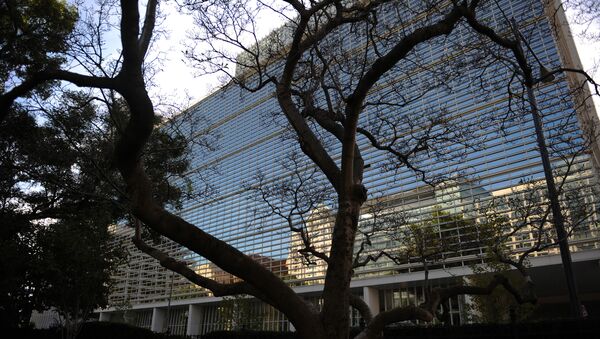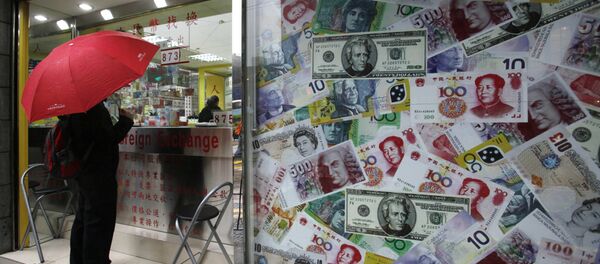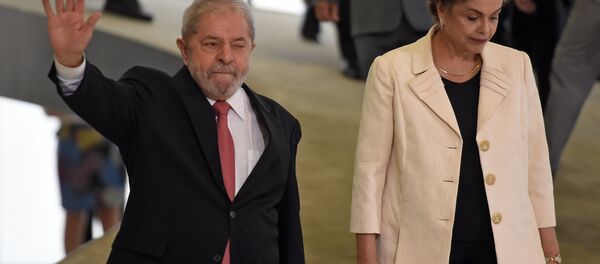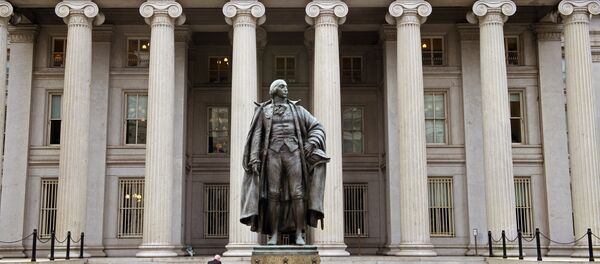Sputnik talked to Dorothe Singer, an economist at the World Bank, who took part in the forum.
Sputnik: In your view, has the problem of financial accessibility become a part of the mainstream?
Dorothe Singer: Yes, I think we've seen financial inclusion certainly come to the fore of international policy forums such as here, the Alliance for Financial Inclusion. You saw that over 90 countries are members of the alliance; you also see that at the World Bank, where I work, financial inclusion is an explicit goal: the World Bank has the goal of universal financial inclusion by 2020.
READ MORE: ‘World May be Heading for Currency War', India's Central Bank Warns
Sputnik: How successful has this forum been in addressing the issue of financial accessibility?
Dorothe Singer: I think you've seen in the presentations that it's played a critical role in bringing people together from around the world, exchanging the experiences and really learning from each other in terms of promoting financial inclusion.
Sputnik: What are the key reasons for the World Bank to join the AFI forum?
Dorothe Singer: We think the AFI is a very important organization in terms of promoting financial inclusion and we at the World Bank believe that financial inclusion is important in terms of promoting development more generally. Financial inclusion is an enabler for promoting growth, providing ways out of poverty and in terms of that, we at the World Bank measure financial inclusion as part of the world's Global Findex database, but we also have the goal to help countries in their financial inclusion journeys.
Sputnik: The theme of the 10th-anniversary forum for financial accessibility is "innovation, inclusion, impact." In your opinion, what indicators in the field of financial accessibility will have a real impact? What's the optimal time to reach them?
Dorothe Singer: I think innovation has certainly been driving financial inclusion over the past couple of years. We've seen innovations in technology, such as mobile technology that allows easy access to financial services; we've heard talk about Asian banking which is also enabled by technology and access to data, we've talked about biometric IDs and how they enable access to financial services. There's a lot of things going on that help us increase financial inclusion.
READ MORE: 'World's Piggy Bank': Trump's NATO Rhetoric 'Is Not Something New' — Analyst
The main focus is really how technology can be leveraged to increase account ownership. One example from sub-Saharan Africa is the success of mobile money in bringing financial services to rural populations, for example, that in the past have just been very hard to reach by traditional bank models.
Sputnik: Currently, what are the most effective measures in the field of financial accessibility, financial inclusion?
Sputnik: It seems like for governments, for states, it's better when people make their transactions on electronic platforms because it's much easier to control. But people are afraid of being cashless; what should we do? How do we keep a balance between these two issues?
Dorothe Singer: Data privacy and protection is very important. I think it's up to countries to make sure that people trust financial services, especially digital financial services; that they trust their data is protected, their data is secure. I think that's an important challenge going forward. I would also say that when we talk about digitizing payments, I think it's not an either or position, it's not either all digital or all cash; people will use financial services as they make sense.
READ MORE: Vicious Cycle: World Bank Warns of Looming Global Economic Crisis
Sputnik: What does the World Bank do for people to trust the financial digital services?
Dorothe Singer: We help our member countries enact regulations that will ensure that data privacy and data protection are ensured.
Sputnik: How can the development of digital financial services impact the dominance of traditional financial institutions?
Dorothe Singer: I think digital financial services, such as mobile money, have certainly been successful in serving parts of the populations that haven't been served by traditional banks before. In part, they're entering a market that hasn't been served before, in other parts they introduce another level of competition and competition is in general something good, because the consumer typically benefits from competition in the financial sector.
READ MORE: World Bank Sends Analysts to Assess Russia's Business Reforms Implementation
Sputnik: How do you assess the Russian success in the field of financial accessibility in recent years?
Dorothe Singer: As I mentioned in my presentation, Russia is one of the countries that stands out in that there's gender equity in terms of financial inclusion as measured by account ownership. I think that really speaks to a financial inclusion strategy that pays attention to that, because we don't see that in a lot of countries. That's really one area where Russia has to be complimented.
The views and opinions expressed by the speaker do not necessarily reflect those of Sputnik.







